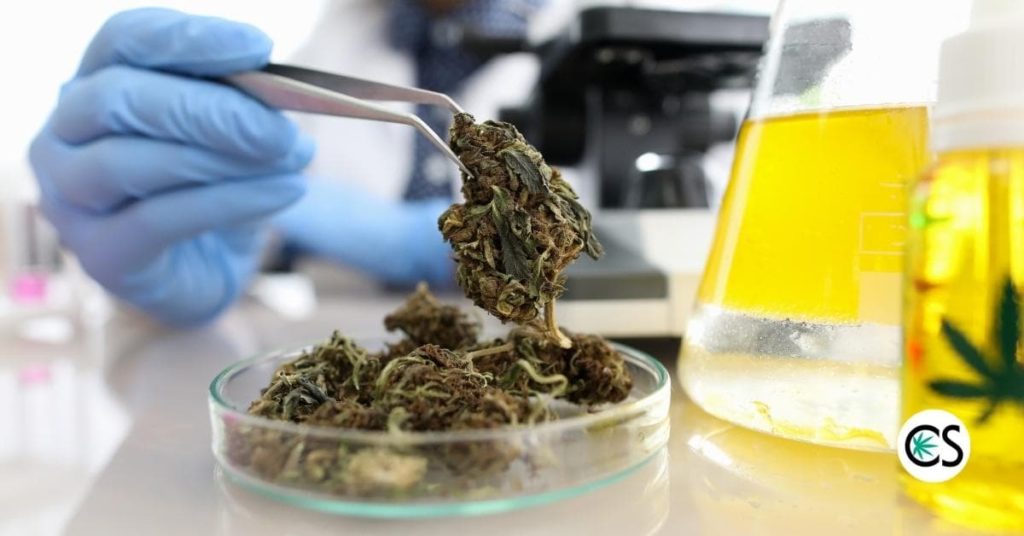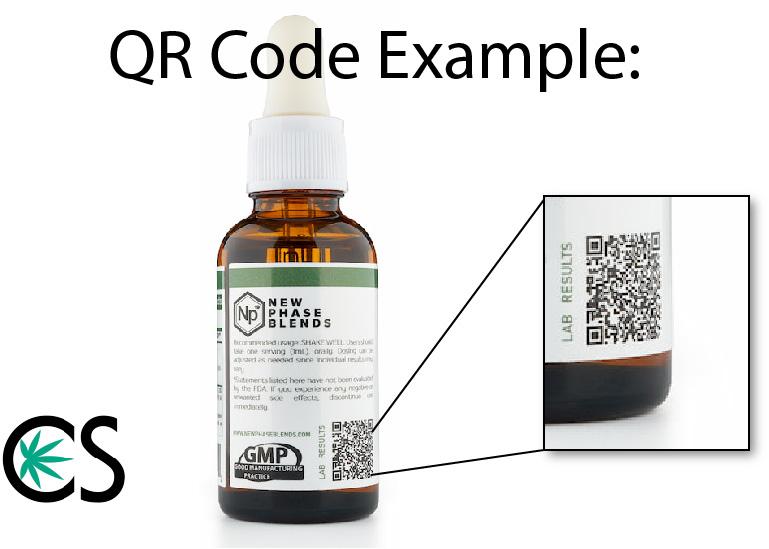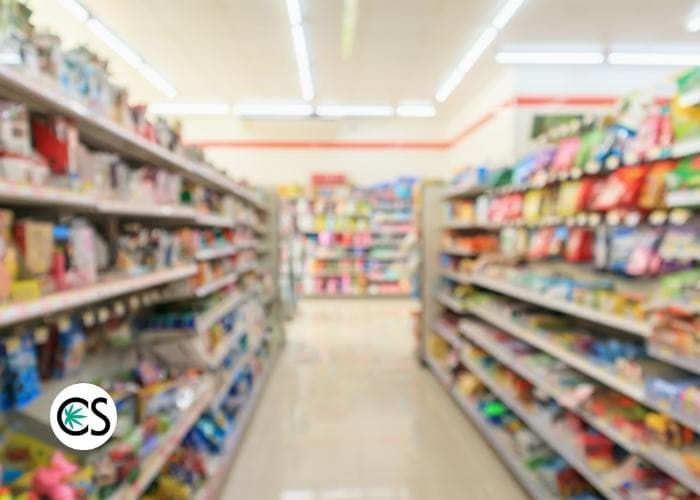CBD has been gaining traction in the mainstream for the last couple of years. As more and more people gain knowledge about CBD and all the possible health benefits CBD may provide, the next inevitable question is where do you buy CBD oil?
Let’s first give you a brief overview of some factors that should go into you feeling comfortable about a CBD brand and its CBD products. While the CBD industry is relatively new, and although CBD is legal to purchase, at least in one form or another, in all 50 states, this does not mean all CBD products are created equally.
What Separates CBD Brands
The Farm Bill in 2018 made it legal to grow hemp in the United States. While this is a major hurdle that the cannabis industry has overcome, there are still many roads to cross prior to CBD and cannabis being a fully accepted industry in the mainstream.
The FDA has still not given the full green light to CBD-related products which leave the industry in sort of a gray area when it comes to the marketing of CBD products, along with the “FDA has concluded that THC and CBD products are excluded from the dietary supplement definition.”1 This also keeps the industry from creating a uniform recommended dose of CBD for people to universally follow.
Discover: CBDMD Gummies Review
So, with all of this said, it is important for the consumer to understand what makes a CBD product, or CBD brand, “good” or “bad”. Understanding some important factors to look out for will assist in knowing where to spend your hard-earned money, along with understanding what locations make sense for you to feel comfortable in answering the question, “where do you buy CBD oil?”
Third-Party Lab Testing
READ: Third-Party Lab Testing Why It’s Important
When researching CBD brands and considering purchasing their CBD gummies, CBD capsules, CBD oil, or CBD topicals, one crucial checkpoint you need to make sure of is that a brand has all of its products tested by a third-party lab.
A third-party lab is an independent lab that will test a portion of a product. Products are created in batches, so when one product from a batch is tested, it will pretty much give the results of all the products that were created in that batch. This ensures safety, along with making it relatively easy to recall all products of that batch.
A lab tests for the cannabinoid and terpene profiles of the product, which includes the THC levels. While THC is allowed to be present in CBD products, they are not legally allowed to have more than .03% THC content.
A lab will also test to see if heavy metals are present in the product, ensuring that the soil the hemp plant was grown in was safe. Testing for organic solvents is also something a lab will test for, ensuring that the CBD extraction method didn’t use harsh solvents.
Pesticides and biological contaminants are also tested at a third-party lab.

Certificate of Analysis
After a product has been tested, that CBD product will have a Certificate of Analysis (COA). A reputable brand will make it easy for the consumer to find the COA so that the consumer understands whether the product received a pass or fail grade. Most brands will have a COA section on their website where all of their product’s COAs are listed, or each product will have the COA on the website page.
Some brands go a step further and put a QR code on their product to make it very easy for the consumer to see that their product has passed the third-party lab test. Below is an example of one of CBD School’s favorite brands, New Phase Blends, QR code on their label.

Customer Reviews
The CBD industry has only been around for a relatively short while, and it seems like new brands pop up monthly. While most of these brands are produced via white labeling, meaning the brand outsources the actual production of the products, and the brand focuses on branding and marketing, this does not ensure the product they are producing is something you should purchase.
Another layer to keep in mind when looking for a CBD product is to find a brand that has a positive history of customer reviews. While this is not a foolproof way to ensure quality, it definitely gives you some insight into how other consumers like a brand and its products.
A brand that has a consistent four to five-star customer review usually will produce some high-quality products.

High-Quality Ingredients
If you see the word organic in many, or all, of the ingredients on the label, chances are the CBD product is being produced by a quality brand. While this is definitely not a home run factor, the majority of brands that go out of their way to source organic ingredients have the final user in mind when they produce their products.
Organically grown hemp is also something to pay attention to, as hemp that is grown organically usually has a higher potency CBD, which is something you want. Staying away from additives, or a product that has a bunch of artificial flavoring added is also something to pay attention to. You want to find the cleanest products that are on the market to not only ensure the product is high-quality, but also to consider your health.
Essentially, you have the liberty of buying CBD oil from a place that’s convenient to you as long as the product has high standards of quality.
Locations Where You Can Purchase CBD Oil
As the legality of CBD, and cannabis as a whole, has made it easier to find CBD products, you will notice CBD almost everywhere. From all over the internet, to Amazon, your local pharmacy, and the gas station around the corner.
Discover: CBD Oil Amazon
While CBD has increasingly become easier to find, and purchase, that doesn’t mean you should run into your local convenience store and grab some. It may be an easy action to take, however, it gives you little understanding and assurances of the brand or product you are throwing in your basket.
Let’s dive into some locations and a brief understanding of whether it makes sense to make your purchase at the location.
Gas Station
You’ve seen the CBD products all lined up behind the thick glass that separates the cashier and you, right next to the cheaply made glass bowl. Yes, it’s very easy to find CBD products these days, but that doesn’t make it right.
Gas stations may be one of the most convenient locations to purchase CBD, however, they most likely have a very limited product offering, and only sell one brand. On top of that, what is the quality of the brand you are limited to purchasing?
Do you feel comfortable that the buyer for the local gas station has your best interest in mind when they purchased that CBD product? All signs point to you not being able to ensure high-quality, and most likely are wasting your money.

Drug and Convenience Stores
A national chain drug store will have higher standards than a local gas station. To find your way onto the shelves of a chain pharmacy isn’t easy or cheap, and has a higher vetting process than a gas station.
While a national chain isn’t the worst place to shop, you are limited to whatever they offer, which most likely is at most two brands. The quality of the brand may be hit or miss, but most likely is not an awful place to start your CBD journey.
Health Food and CBD-Specific Stores
These two locations will give you a nice assortment of CBD products, and brands. Most likely, the salespeople will have some basic knowledge of CBD, although, that might be limited.
While both of these may have a good amount of products, the CBD-specific store is more than health food stores, you’re still a bit limited to what they have on their shelves. Do they have a high enough turnover rate of products to ensure you’re getting fresh and not close to the expiration date products?
Also, making a purchase at a store, where you’re limited to what’s on the shelf, and then balancing that fact with also doing some quick internet research doesn’t always equal the most sound purchase, although, you may end up with some high-quality CBD!
World Wide Web
As we all are well aware, the internet is a vast ocean of products looking to find their way to your home. This doesn’t mean every corner of the internet will provide you with the high-quality CBD you’re searching for. For instance, search for CBD on Amazon, and you will find thousands of products. However, you are very limited to high-quality brands.
The majority of the quality brands that have been in the industry for years, and have built a reputation for producing some quality products do not sell on Amazon. Sure you might find a random product that a third-party retailer is selling, but that’s pretty much it.
Quality brands usually sell direct to consumers via their own website where the brand is able to control the sale, messaging and shipping. Many brands also send their product with discrete shipping, as some people are still a bit iffy when it comes to receiving a package that says CBD.
Purchasing online also gives you the opportunity to digest as much information as possible about a brand, its products, and the reviews. Some brands use Trustpilot for their review sections to give the consumer an added layer of confidence that the reviews are real.
Doing your own research, and making sure a brand passes the smell test, should be on your radar prior to making a purchase. Prior to dipping your toe in the CBD world, you should also speak with your doctor, especially if you take other medications to ensure you don’t get a drug interaction with CBD.
Conclusion
CBD is not hard to come by these days, however, this shouldn’t mean you should jump at the first product you find at the local gas station. Doing some of your own research about a brand and a product will be beneficial for you. Read some of our brand reviews, and visit our brand discount page to find some really great coupon codes on high-quality CBD products from some great CBD brands. Read customer reviews, and make sure that a brand has its products third-party lab tested, uses quality ingredients, and provides you with a Certificate of Analysis.
references
1Commissioner, O. of the. (2021, January 22). FDA regulation of cannabis and cannabis-derived products: Q&A. U.S. Food and Drug Administration. Retrieved June 29, 2022, from https://www.fda.gov/news-events/public-health-focus/fda-regulation-cannabis-and-cannabis-derived-products-including-cannabidiol-cbd
